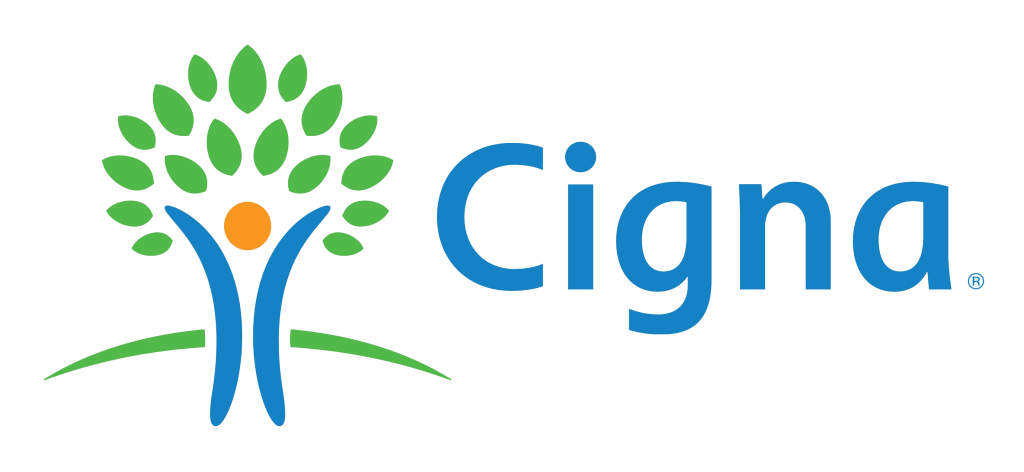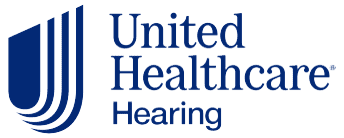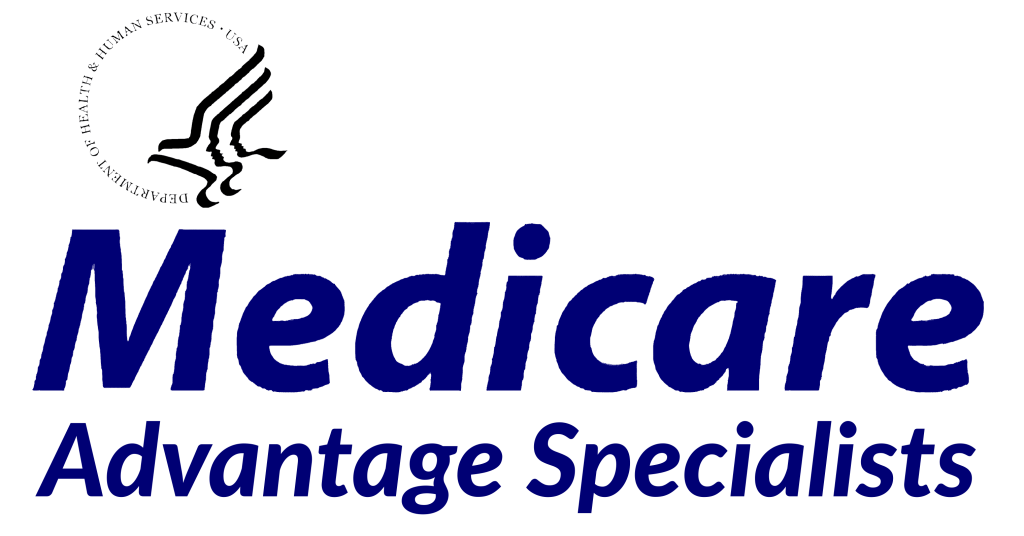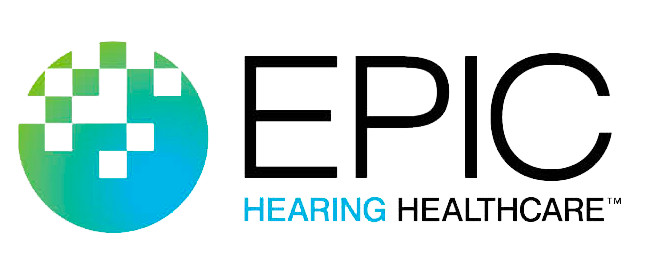Hearing Aid Insurance Benefits












At American Hearing + Audiology, our mission is to provide our patients with the best care possible.
The friendly specialists in Central Arkansas and Memphis, TN are ready to help you verify your insurance coverage and maximize your savings.
If you’d like to learn more about your insurance benefits for hearing aids, contact your nearest hearing center today.

What Is Hearing Aid Insurance?
Hearing aid insurance is the coverage offered by insurance companies to help cover the cost of hearing aids. Plans will often include partial or full coverage for the purchase and fitting of hearing aids, and sometimes a limited number of regular maintenance appointments including cleanings and repairs. Hearing aid insurance plans differ in terms of what they cover, so it is important to find out what your policy includes before purchasing hearing aids. Don’t worry, though, because our hearing aid insurance specialists will help every step of the way.
At American Hearing + Audiology, we believe in helping our customers make the most of the insurance they have for hearing aids. Our team of experts will guide you through the intricacies of your coverage, ensuring that you fully understand what is covered and the costs associated with it. We are dedicated to empowering you to optimize your insurance coverage for maximum benefit.
Vast In-Network Hearing Aid Benefits
Our priority is to make sure our patients receive the best hearing aid care and services available. By having a large network of in-network providers, American Hearing + Audiology believes in helping our clients make the most of their insurance coverage for hearing aids and other hearing health services. With our expertise, we ensure that you fully understand your coverage and help you optimize it for maximum benefit.
We are in-network with major insurance companies including, but not limited to, Blue Cross Blue Shield, Cigna, Aetna, and UnitedHealthcare.

Peace of Mind
We understand how having a hearing problem can be difficult, both physically and emotionally. That’s why we’ve partnered with a vast network of insurance providers to accept all major plans, so you can rest easy knowing that American Hearing + Audiology has your hearing aid needs covered.
We are here to help you so that our patients can get the hearing health care they need, when and where they need it. So don’t delay any further — contact American Hearing + Audiology today and let us show you why we are the largest in-network hearing aid provider in the Central Arkansas & Memphis, TN area. We look forward to helping you get the best hearing aid care possible and maximize your hearing aid insurance benefits with our in-network services.
Our Providers
At American Hearing + Audiology, we are devoted to helping you live your best life with improved hearing. Our team of seasoned professionals have a collective 250 years of experience in the field – ensuring that you receive only the highest level of care and attention. With 4 conveniently located centers throughout Central Arkansas and Memphis, TN — each offering private practice settings — our audiologists and specialists will strive to ensure that you can start living life more fully. Meet Our Local Audiologists and Hearing Specialists!
Does Insurance Cover Hearing Aids?
Insurance coverage for hearing aids varies depending on the insurance plan and the specific policy. Fortunately, we’re in-network with all major insurance carriers to maximize your savings with in-network hearing care. If you’re unsure, our expert staff will gladly help verify your hearing aid insurance benefits. Give us a call today!
What is the difference between an in-network and out-of-network hearing aid provider?
In most cases, an in-network hearing aid provider will offer a greater discount on services than an out-of-network provider. We are proud to be the largest hearing aid provider in the Central Arkansas and Memphis, TN area that’s in-network with all major insurance plans.
- AARP
- Aetna
- Blue Cross Blue Shield
- Cigna
- Humana
- TriCare
- UnitedHealthcare
- Medicare Advantage
- Nations Hearing
- TruHearing
- UnitedHealthcare Hearing
How do I find out if my insurance covers hearing aids?
The best way to find out if your insurance policy covers hearing aids is to contact your nearest American Hearing + Audiology location! Our insurance specialists will work with your insurance to verify the specifics of your hearing aid benefits, and since we’re in-network providers for all major insurers, we’re often able to help patients get premium hearing aids for little to no out-of-pocket cost. That’s right, we make it easy to get the most from your hearing aid insurance benefits.
Do I need a referral from my primary care physician to see one of your in-network providers?
Whether or not you will need a referral from your primary care physician depends on your individual insurance plan. In general, most commercial PPO plans do not require a referral from your primary care physician to see one of our in-network providers. However, certain insurance policies, like Medicare, may require a referral in order to cover testing and treatment recommendations. To determine if a referral is necessary, our team will collect your insurance information and assist you in obtaining the appropriate referral or documentation needed to ensure your services are covered.
Is my deductible going to be affected by this process of getting hearing aids?
Yes, the cost of hearing aids will likely be applied toward your deductible, depending on your insurance plan. This means that the amount you pay for the hearing aids may count towards your annual deductible, which is the amount you’re required to pay before insurance starts covering a portion of your healthcare costs. However, our team can help you fully understand your insurance coverage and deductible requirements, as well as any potential out-of-pocket costs associated with the process of getting hearing aids through American Hearing + Audiology.
Why should you visit a hearing care provider that’s in-network?
It is important for your hearing care provider to be in-network because it can help you save money on the cost of your hearing healthcare services. When an audiologist is in-network with your insurance provider, they agree to accept the insurance company’s negotiated rates for their services. This means that you will typically pay less out-of-pocket for your appointments, tests, and any hearing aids or accessories that you may need.
Here are a few specific reasons why it’s important to choose an in-network hearing specialist and audiologist:
- Lower costs: In-network audiologists have agreed to accept lower rates for their services in exchange for being included in the insurance company’s network. This means that you will typically pay less for your appointments and any other hearing healthcare services that you receive.
- More affordable hearing aids: When you visit an in-network audiologist, your insurance plan is more likely to cover a higher percentage of the cost of your care. This means that you will have more coverage and may be responsible for less of the cost.
- Fewer surprises: When you visit an in-network audiologist, you are less likely to be surprised by unexpected costs or denied claims. In-network providers are required to follow certain rules and regulations set by the insurance company, so you can have more confidence that your costs and coverage will be consistent with what you expect.
Overall, choosing an in-network audiologist can help you save money on the cost of your hearing healthcare and ensure that you receive the best possible care within the guidelines of your insurance plan.
What are hearing aid benefit administrators in the hearing care industry?
In the hearing care industry, a third-party hearing aid benefit administrator refers to organizations or entities that are separate from the patient and the healthcare provider but are responsible for reimbursing or paying for the services rendered. These third-party payers may include insurance companies, government programs, employers, or other organizations that provide health coverage or benefits.
Providers in the hearing care industry, like American Hearing + Audiology, often need to establish contracts or agreements with these hearing aid benefit administrators to be considered in-network and receive reimbursement for the services they provide. To best serve our patients, we went through that process and have become an in-network provider for all major insurance carriers and their affiliated hearing aid benefit administrators.
- Provider Contracting: TPAs often enter into contracts or agreements with hearing care providers to establish a network of in-network providers. The contracts define the terms and conditions for reimbursement, including rates, billing procedures, and any specific requirements for participating in the network. Hearing care providers who agree to the contract become part of the TPA’s network and may be listed in the provider directories.
- Claims Submission and Reimbursement: Hearing care providers submit claims to the TPA for services rendered to patients covered by the TPA’s healthcare plans. The TPA reviews the claims for accuracy, eligibility, and adherence to the plan’s guidelines. Once the claims are approved, the TPA reimburses the hearing care provider according to the agreed-upon reimbursement rates and payment schedules.
What type of hearing aids do hearing aid benefit administrators cover?
The coverage provided by Hearing Aid Benefit Administrators, aka Third-Party Administrators (TPAs) can vary depending on the specific TPA and the insurance plan they administer.
Insurance plans administered by TPAs may offer coverage for different types of hearing aids based on the terms of the plan and the specific policies chosen by the employer or organization. Coverage may include a range of hearing aid styles, technologies, and brands. Some insurance plans may have specific criteria for coverage, such as the degree of hearing loss, the need for medical necessity documentation, or preferred (in-network) providers that must be used.
Since we participate with the major TPAs, including but not limited to, UnitedHealthcare, Nations Hearing, and TruHearing, our specialists are able to maximize your savings while providing unparalleled hearing care.
When do benefits reset?
The frequency with which you can get new hearing aids with insurance coverage can vary depending on the specific insurance plan or policy, but they typically reset every 1 to 3 years. Fortunately, this allows patients to benefit from recent hearing aid advancements at regular intervals. You’d be amazed at how often new features are released as the technology improves. For some folks, the same hearing aids might meet their needs for 4+ years, but that doesn’t mean they’re getting as much out of their devices as they could with pairs released more recently. As the technology develops, so do the ways in which hearing instruments can improve a user’s life, and that’s not something to miss out on.
When you’re a patient with us, our staff will help you maximize your benefits by verifying the frequency at which you can receive new technology, and they’ll help you remember when your benefits renew so that you can enjoy the latest technology for little to no out-of-pocket cost. If you have any questions, please give us a call!
Does Medicare cover hearing aids?
While Medicare (Traditional) does not typically include hearing aid benefits, Medicare Advantage now includes benefits that can provide you with advanced hearing aids at little to no out-of-pocket cost. If you have Medicare Advantage and are in need of hearing loss treatment, give your nearest American Hearing + Audiology location a call today!
What is the difference between Medicare and Medicare Advantage?
Medicare and Medicare Advantage are both healthcare programs in the United States, but they differ in terms of how they are structured and the benefits they offer. Here’s an overview of the differences:
- Medicare: Medicare is a federal health insurance program primarily for individuals aged 65 and older, as well as certain younger people with disabilities. It consists of several parts:
- Medicare Part A: This covers hospital insurance, including inpatient hospital stays, skilled nursing facility care, hospice care, and some home health care services. Most people do not pay a premium for Part A if they or their spouse have paid Medicare taxes while working.
- Medicare Part B: This covers medical insurance, including doctor visits, outpatient care, preventive services, and medical supplies. Part B requires a monthly premium, and the cost is based on income.
- Medicare Part D: This provides prescription drug coverage, which can be obtained through standalone Part D plans or Medicare Advantage plans that include prescription drug coverage. Part D plans are offered by private insurance companies, and premiums and coverage vary.
- Medicare Advantage (Medicare Part C): Medicare Advantage plans are an alternative way to receive Medicare benefits. Offered by private insurance companies approved by Medicare, these plans must provide at least the same level of coverage as Original Medicare (Parts A and B). However, they can also offer additional benefits not covered by Original Medicare, such as dental, vision, hearing, and fitness programs.
Medicare Advantage plans typically require individuals to use a network of healthcare providers, but don’t worry, because we are!
In summary, Medicare is the original federal health insurance program that provides coverage through Parts A, B, and D, while Medicare Advantage is an alternative to Original Medicare offered by private insurance companies, providing at least the same coverage and often additional benefits.
Do other hearing centers participate in Medicare Advantage?
- Many DO NOT. WE DO!
- We participate with EVERY insurance plan in our area, including Medicare Advantage, where other hearing practices are out of network. Make American Hearing + Audiology your FIRST STOP for IN-NETWORK hearing aid benefits!
- If a hearing center cannot confirm that they are in-network with Medicare Advantage, you won’t be able to save nearly as much as if they were.
Not all hearing centers are necessarily in-network with Medicare Advantage plans, in fact many are not. The network of healthcare providers, including hearing centers, can vary depending on the specific Medicare Advantage plan you choose, but American Hearing + Audiology has participants covered no matter what.
Medicare Advantage plans typically have a network of healthcare providers that contract with the insurance company to provide services to plan members. In-network providers, like American Hearing + Audiology, usually have agreed-upon rates with the insurance company, which can result in lower out-of-pocket costs for plan members. Going to an out-of-network hearing center may still be possible, but it may involve higher costs or different coverage rules, such as higher copayments or coinsurance.
To ensure coverage for hearing services, including hearing aids and related tests, it’s advisable to review the details of the Medicare Advantage plan, particularly its coverage for hearing care. Some plans may offer more comprehensive coverage for hearing services, while others may have more limited coverage. It’s also worth noting that Medicare itself has limited coverage for hearing aids, so additional coverage through a Medicare Advantage plan may be beneficial if you require hearing-related services.
Long story short, if a hearing center cannot confirm that they are in-network with Medicare Advantage plans, and many aren’t, chances are that you won’t be able to save nearly as much. That’s why, we recommend taking out the guesswork. Just give your nearest American Hearing + Audiology hearing center a call and rest assured that any of our great providers are in-network with Medicare Advantage.
What has changed in how hearing aid benefits are handled?
Over the last 5 years the hearing care industry has changed dramatically. Previously, you and your insurance company would combine to pay a higher, “bundled price” for hearing aids that included unlimited ongoing service and support for a period of 3 to 5 or more years. As recently as 2017, we estimate that only 20-35% of patients had hearing aid insurance benefits to pay a portion of the cost for hearing aids.
Now, it works a bit differently. First the GOOD NEWS – we estimate that 60-75% of patients with hearing loss have some type of hearing aid benefit due to the addition of hearing aid benefits to most Medicare Advantage insurance plans. BUT, today’s hearing aid benefits are DIFFERENT than before. Today, these benefits help pay for the electronics, a hearing test, programming and delivery of the hearing aids plus a limited number of follow-up appointments. They do not cover the cost for ongoing service and support that patients need to maintain their hearing aids and keep you hearing your best (professional cleaning, routine adjustments, etc.). Learn about how you can continue to save on additional follow-up appointments and more.
Let Us Help You Maximize Your Hearing Aid Insurance Benefits!
At American Hearing + Audiology, patients have a partner who will go above and beyond to outline their insurance coverage and maximize their benefits. With our extensive network of insurance providers and ability to accept all major plans, our insurance specialists are guaranteed to help you minimize your out-of-pocket expense. Contact us today to learn more!